CASSAVA FARMERS EXPOSED TO HEALTHY IMPROVED CASSAVA VARIETIES AND PLANTING MATERIALS FOR PRODUCTION
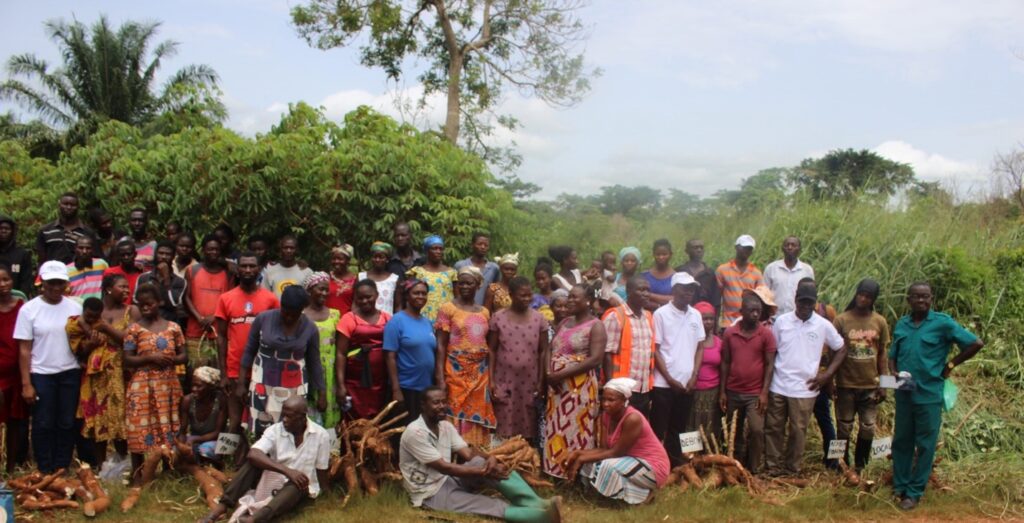
Cassava farmers in the Upper Manya Krobo district in the Eastern region of Ghana have resolved to adopt improved cassava varieties developed by the CSIR-Crops Research Institute. The farmers who took part in a farmers’ field day event organized by the Institute on 25th May, 2023, were very impressed with the superior yields from the improved, disease-resistant varieties in comparison to the local varieties they were used to. The field day brought together cassava farmers, researchers and agricultural extension agents involved in cassava production from communities such as “Akohia”, “Sekesua”, “Bomase” and “Abetime”.
Freshly harvested tubers from four improved cassava varieties, CRI-Agra, CRI-Abrabopa, CRI-Afisiafi and CRI-Bankyehemaa, and three local varieties which were planted together on a demonstration field were compared after harvesting. The local varieties were “Acheampomaa”, “Debor” and “Asesewa Local”.

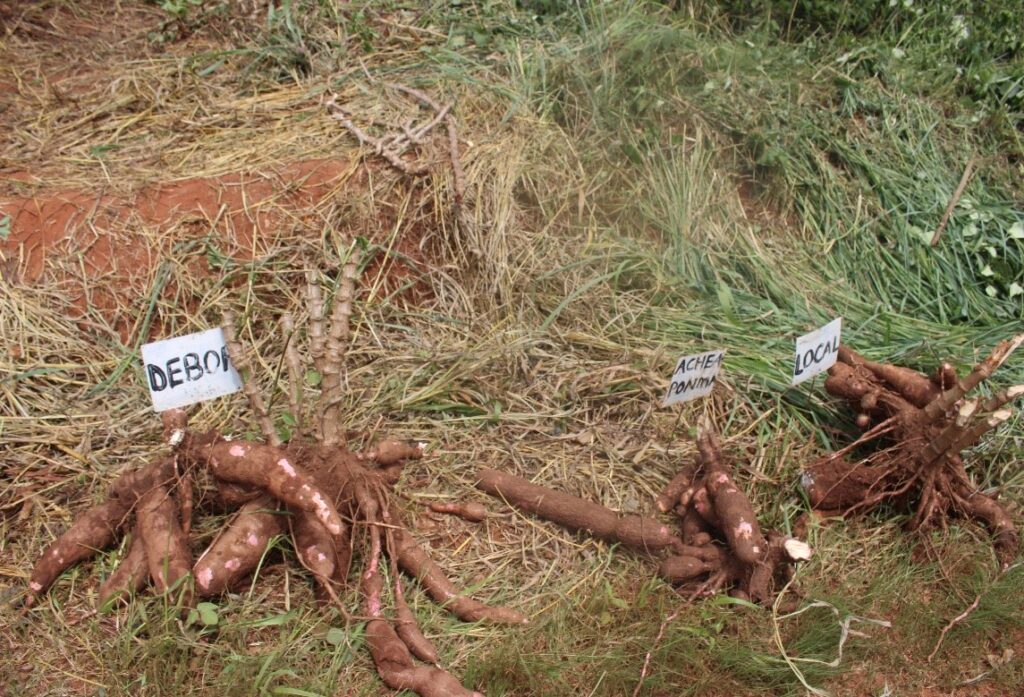
The four improved varieties did not only yield superior tubers but were also disease-free and weighed heavier than the local varieties.
The field day was organized as part of activities under the Central and West African Virus Epidemiology (WAVE) for root and tuber crops project, which seeks to equip and prepare scientists, policy makers and other stakeholders on the need to take pre-emptive steps aimed at protecting citizens from famine caused by viral diseases.
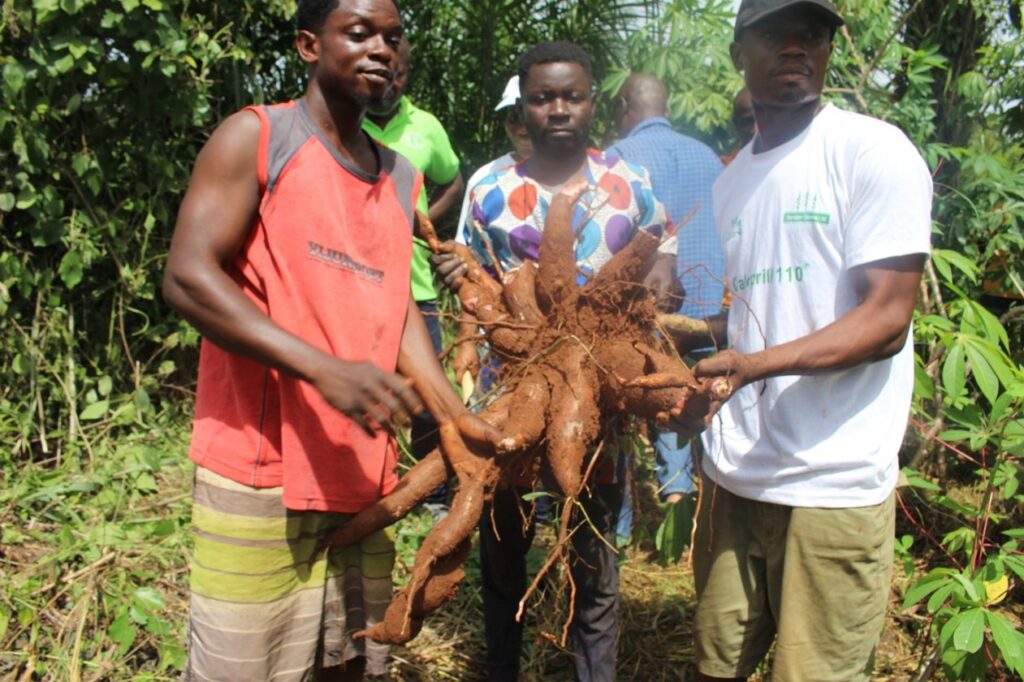
The WAVE project is funded by the Bill and Melinda Gates Foundation (BMGF), the United Kingdom Foreign Commonwealth and Development Office, with support from CORAF and the European Union. Its aim is to understand and predict the emergence and evolution of root crop viruses in West and Central Africa by using modern environmental and disease monitoring systems. This will help to reduce the impact of these viruses on smallholder farmers and improve food security across the continent.
In 2022, the WAVE project organized a sensitization campaign at Asesewa to create awareness of the major diseases that adversely affect productivity of cassava and sensitized farmers on how to identify viral and other disease and how to mitigate their effects to promote sustainable food security.
Addressing the farmers during the field day, the project coordinator of the WAVE project in Ghana, Dr. Allen Oppong, a Principal Research Scientist and Head of the Plant Health Division of the Institute stated that, the field day was a follow-up to the sensitization campaign held in 2022 as it sought to demonstrate to farmers, the several benefits they would derive from planting diseased-free planting materials of improved cassava varieties instead of local ones.
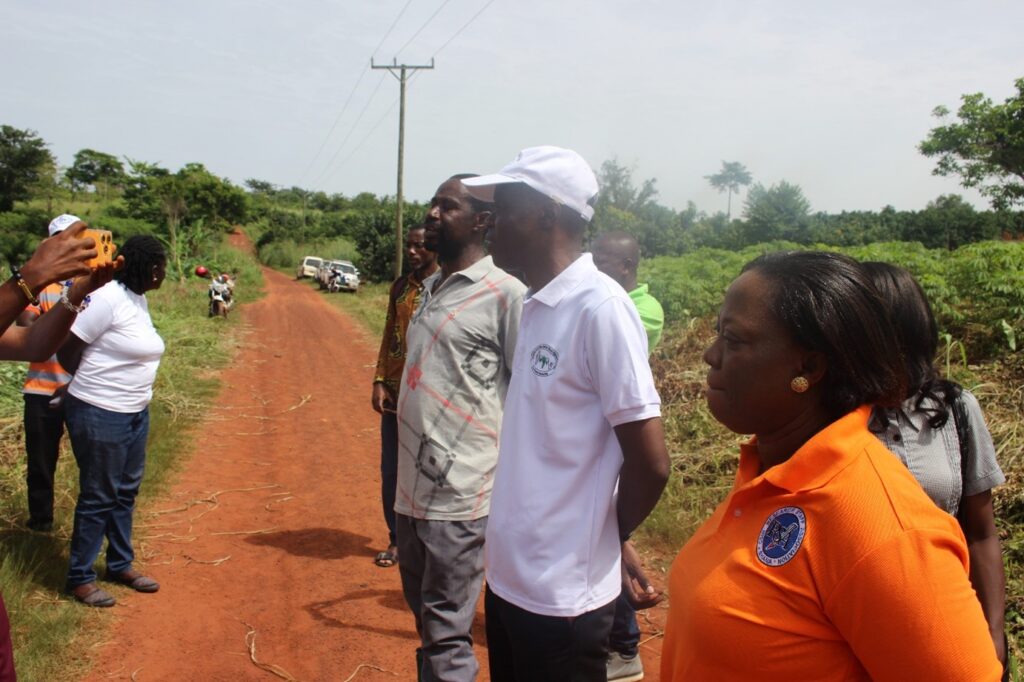
Having observed the disparity between the yields from the improved varieties in comparison to the local varieties, the farmers were eager to be provided with planting materials of the improved varieties to plant immediately.
Mr. Seth Adu-Ansah, a cassava farmer for over fourteen years, could not hide his joy at the prospects of planting the improved varieties. “We are grateful to the CSIR-CRI for this great gift they have given us. These varieties were planted in the dry season and harvested in less than two years but the yields we’re observing, are unprecedented”. The yields from our local varieties cannot compete”, he indicated.
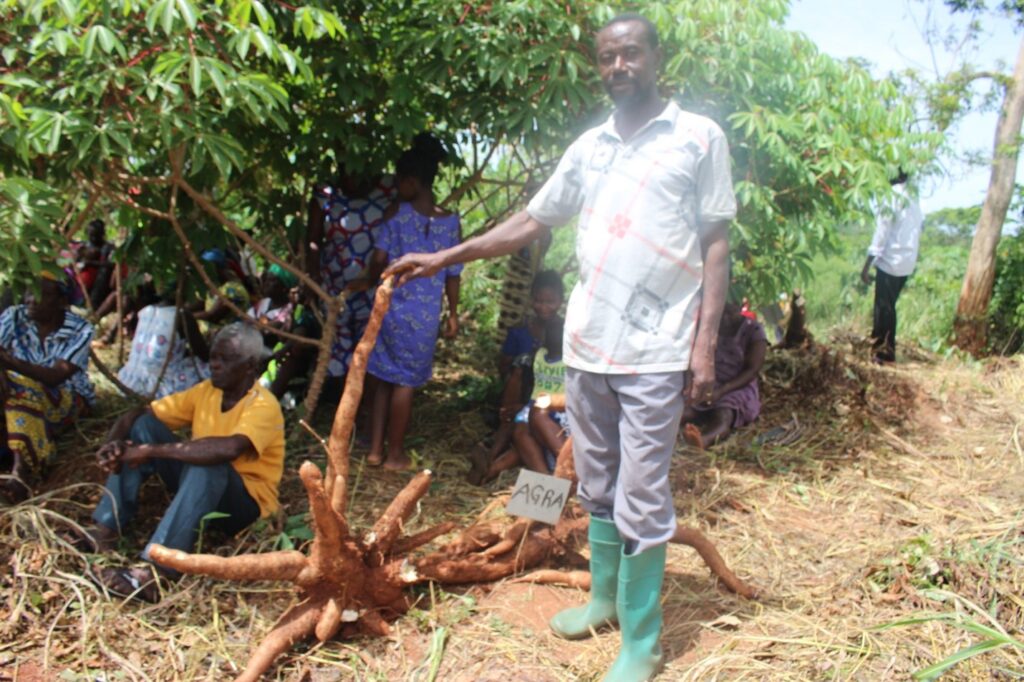
Another farmer, Madam Rita Osei, also expressed her gratitude to the WAVE project and requested that the planting materials of the improved varieties be made available to farmers as soon as possible. “From today, we will start to plant the improved varieties brought to us by the CSIR-CRI because they yield better than our local varieties”, she stated.
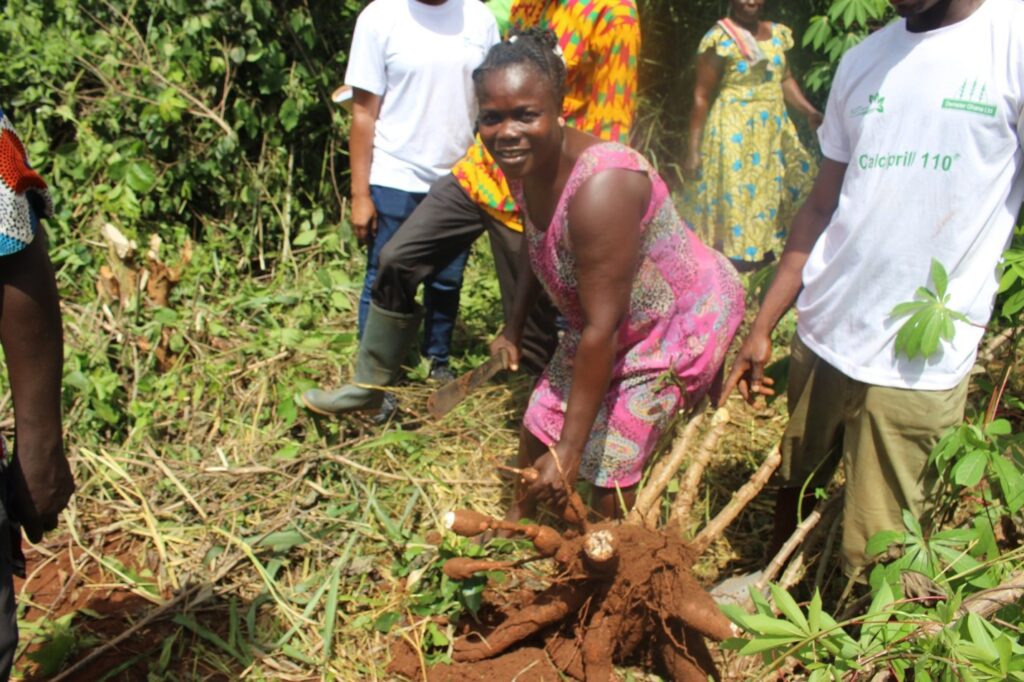
The Director of Agriculture in the Upper Manya Krobo district, Mr Debrah Appiah-Agyekum, thanked the CSIR-CRI for choosing his district for the demonstration and recommended that all cassava farmers adopt the improved varieties for the next planting season. He further assured the farmers that his outfit would be on-hand to provide them with any technical support they might need as they begin cultivating the improved varieties. “The purpose of the demonstration was for the farmers to see the differences in the yields for themselves. We didn’t show them a book or a picture. This is the real situation on the ground, and they can see it for themselves”, he stressed.
Dr. Allen Oppong stated that, the planting materials for the improved cassava varieties will be made available to the farmers through the agricultural directorate in the district and urged them to not only plant the varieties but also introduce it to their colleague farmers.
List of contributors: Dr. Allen Oppong, Dr. Ruth Prempeh, Mr. Bernard Sakyiamah, Mrs. Benedicta Nsiah-Frimpong, Mrs. Zipporah Appiah-Kubi, Enoch Bobie Agyemang
